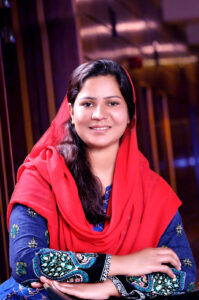Posted to Sister Zeph’s Journal
By Sister Zeph
On 26 January, 2015
Like every individual on this planet who aspires for equality and peace, I am constantly pondering new ideas to empower women in our society.
Women in Pakistan encounter numerous challenges, and there are many individuals and organizations working tirelessly to improve their circumstances. However, supporting them becomes incredibly challenging when some women themselves resist change.
Many women proudly proclaim that they never venture outside their homes. Some even admit they refrain from going to the grocery store to purchase ingredients for cooking, opting instead to wait for the men to return home with groceries. This practice is driven by the belief that a woman stepping outside diminishes a man’s societal standing.
In our country, husbands are often referred to as “Sartaaj,” meaning the crown of a woman’s head, implying that women are expected to obey them unquestioningly, regardless of whether the men are right or wrong.
During my childhood, I witnessed a young woman in my neighborhood enduring daily abuse from her husband. Her routine involved sitting on the mud floor, weeping silently, but she never attempted to escape to safety, never raised her voice, and never defended herself. What struck me even more was the collective apathy of the community, as everyone deemed it a private matter and refrained from intervening.
When a son-in-law visits his in-laws, he is treated like a prince, receiving the finest food, the comfiest bed, and the most welcoming atmosphere. However, when a woman enters her husband’s family, she is expected to adapt herself to their demands and expectations.
My unwavering desire has always been to change this narrative, to secure equality for women as human beings. At Zephaniah Free Education, I resolved to teach women self-defense techniques alongside education and skills development. However, I faced opposition, with claims that it contradicted our culture—assertions that women cannot stand up to men, that they lack the physical strength or agility, and that they should remain at home and rely on fathers or brothers to address street harassment.
But what if a woman lacks a brother or father? Who will protect her?
We, as women, are often discouraged from asking questions, expected to conform to every mandate, no matter how painful.
I then pondered: If women cannot ask questions, why did God grant us the ability to think? If we cannot leave our homes, why did God bless us with legs? If we cannot voice our objections, why did God bestow us with a tongue? If we cannot choose our futures, why did God imbue us with the ability to have preferences, to experience happiness, and unhappiness? If we cannot fight, why did God give us the power to do so?
Men can think, women can think. Men can speak, women can speak. Men can run, women can run. Men can question, women can question. Men can answer, women can answer. Men can ride, women can ride. Men can drive, women can drive. Men can fight, women can fight. Men can protect themselves, women can protect themselves. Men can smile, women can smile. Men can climb, women can climb. Men can read, women can read. Men can write, women can write. Men can shout, women can shout. Men can dream, women can dream. Men can struggle, women can struggle. Men can make decisions, women can make decisions. Men can discover, women can discover. Men can invent, women can invent. Men can walk, women can walk. Men can hear, women can hear.
So why are women not equal to men? The truth is that women are indeed equal to men. The problem lies in the fact that, from birth, women are told they hold lesser value, are weaker, and are dependent on men.
Therefore, I made it my mission to convey to both men and women that women are equal to men. If this male-dominated society does not grant us our rightful equal rights, then we shall claim them for ourselves.
I posed these questions to myself and found no valid reason why women should not have the right to defend themselves. Thus, we initiated our self-defense classes for women, for we are not weak, and we can stand up to anyone who underestimates us.

